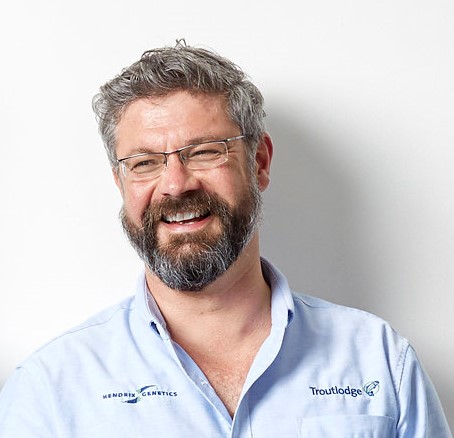Q&A with Keith Drynan of Troutlodge
Editor’s note: The Global Aquaculture Alliance spotlights various members dedicated to GAA’s mission of responsible aquaculture. Membership starts at only $50 for individuals and $5,000 for businesses. Start utilizing our extensive benefits. Featured this month is Keith Drynan, General Manager of Troutlodge, based out of Washington, USA.
 Tell us a little bit about your background.
Tell us a little bit about your background.
Although I am currently working in the United States, I’m from Scotland and I studied at Glasgow and Heriot Watt Universities. I worked in conservation / education for a while before developing a career in aquaculture, which I have enjoyed doing since 2001. I have worked with Atlantic Salmon breeding programme / egg production as well as smolt production and now enjoy the challenges of the global rainbow trout market within a multi species breeding company.
Why did you join GAA?
Since coming to the U.S., I have been shocked by the general preconceptions around aquaculture and fish farming – in all species. In Europe fish farming has been developed more extensively and although it has its challenges I think it is more accepted as part of the agricultural industry. The world needs more sustainably produced protein, and I believe that aquaculture has a huge part to play in the provision of nutritious, affordable seafood. I joined the Global Aquaculture Alliance to be part of that message.
What solutions does responsible aquaculture provide?
Responsible aquaculture can provide sustainable proteins for a growing population and rural employment in an increasingly city focused world. Conversely it can even bring seafood to the doorstep of the city with progress in recirculating aquaculture systems (RAS).
What are the three words that best describe the future of the industry?
I would say that the future of the industry is challenging, but it is also essential and rewarding.
Where is the most interesting place you’ve traveled to?
I’ve been lucky enough to have travelled to a lot of customer sites and different industries around the world. These have been as diverse as the Peruvian Highlands to Central European woodlands in Thuringia and the shores of Lake Huron, Michigan. My favourite place is probably the Western Isles of Scotland with miles of white sand beaches and turquoise bays (in between the gales and the rain!) and is a great example of aquaculture supporting remote communities. On the other hand, the U.S., because of its size, mixture of ideas and entrepreneurialism has probably given me most to think about…
Thanks for being a member, Keith!




